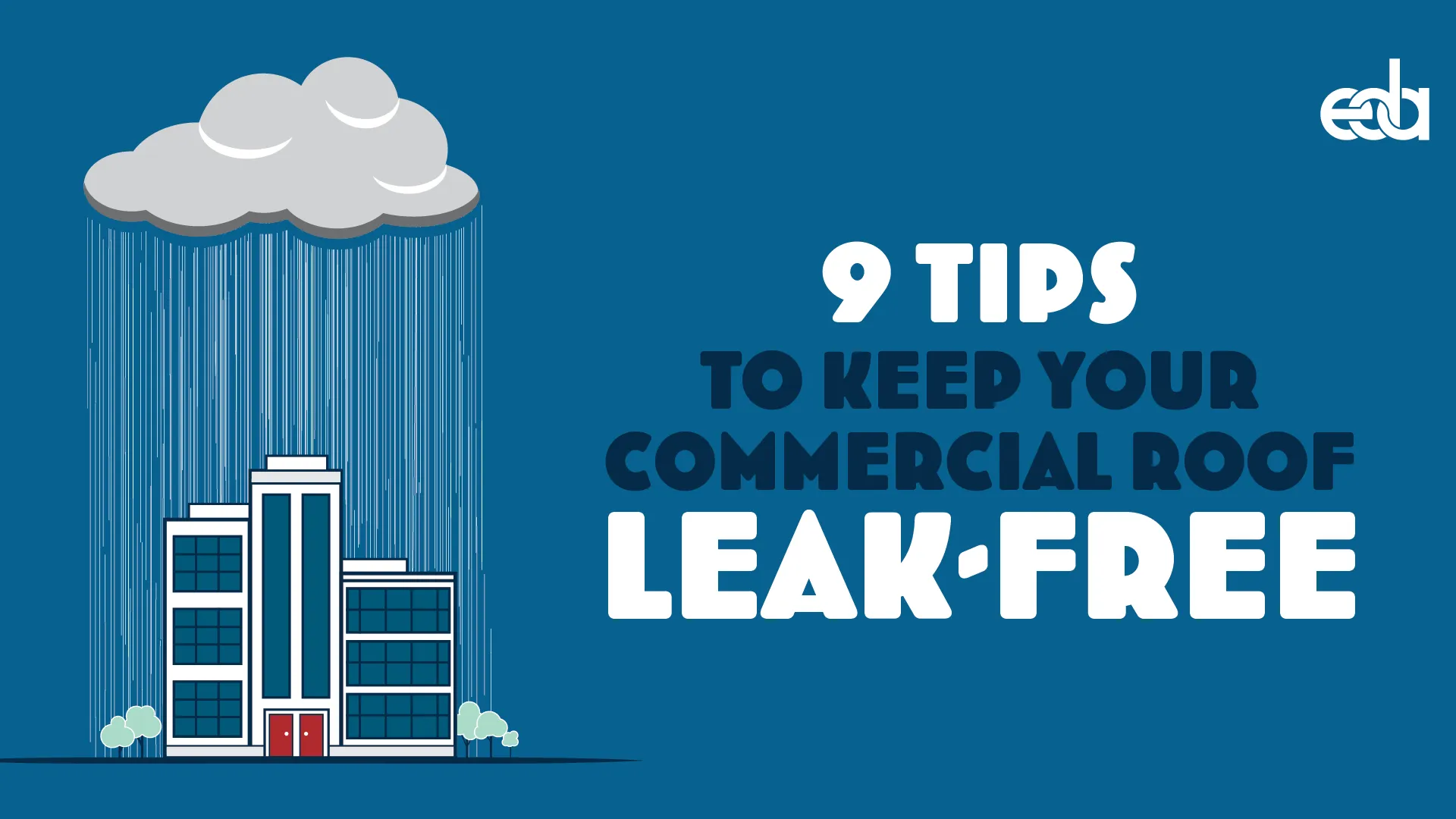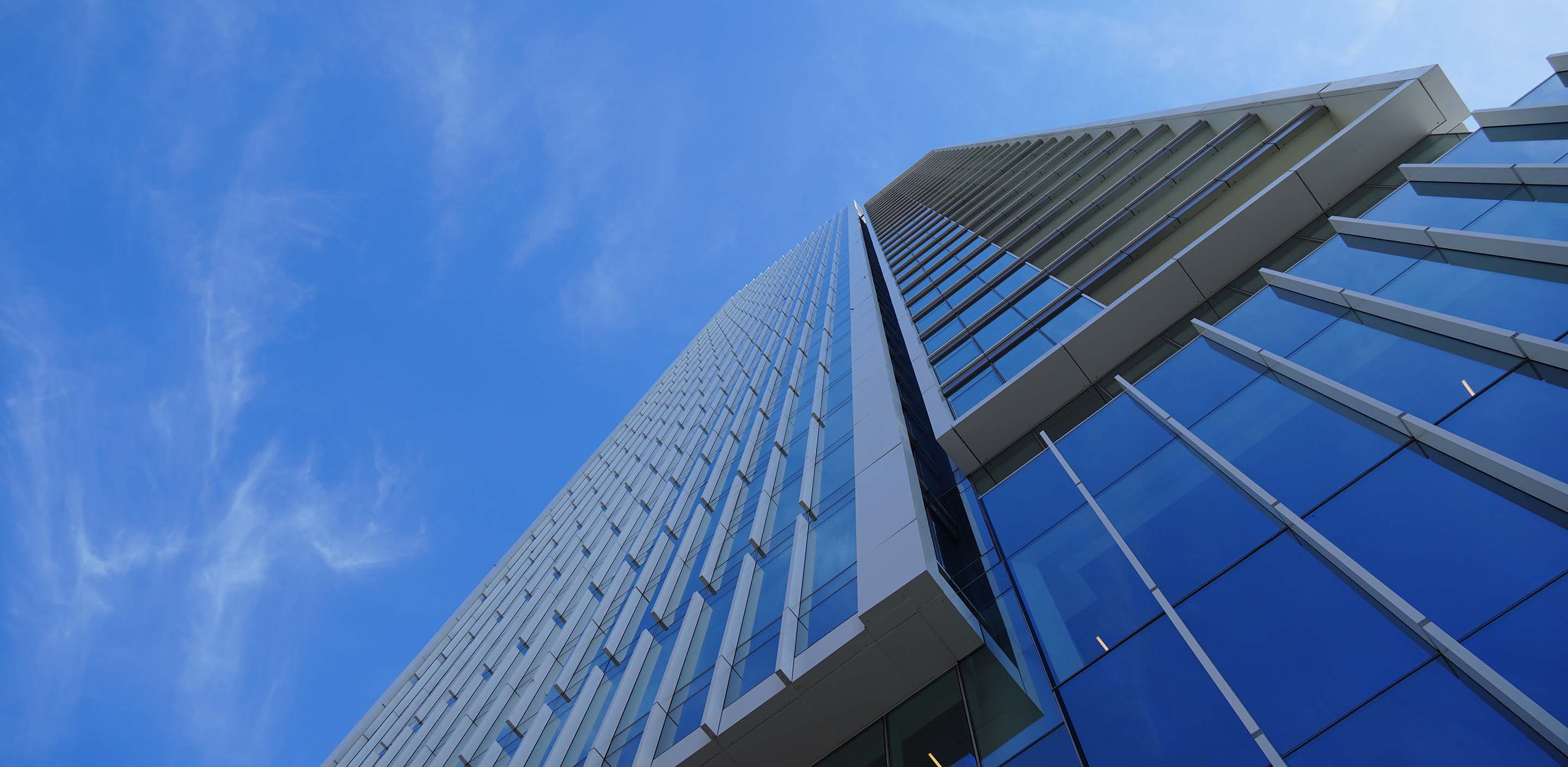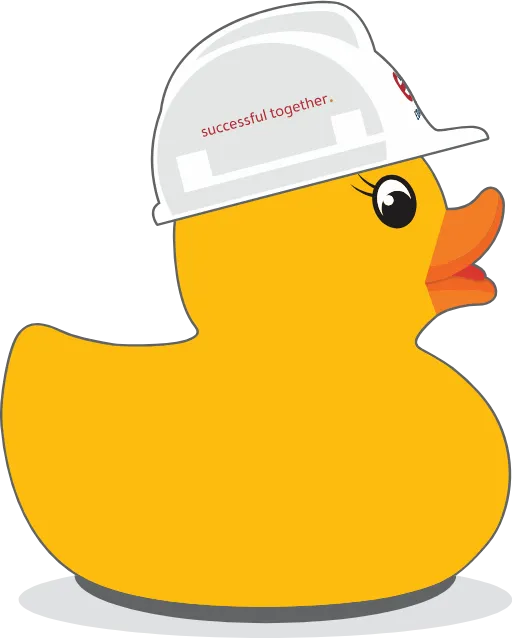9 Tips to Keep Your Commercial Roof Leak-Free
8.18.2023
A leaky roof can cause significant building damage and lead to costly repairs. To help prevent those issues, we have compiled a list of nine tips to keep your commercial roof leak-free.

One of the most important components of commercial building maintenance is ensuring that the roof is leak-free. The roof is the first line of defense for every building when it come to the outside elements. If not properly cared for, a leak can cause business disruptions, compromise safety, and lead to costly damages. To help our current and future customers maintain a leak-free roof, we have compiled nine tips to follow when maintaining a commercial property. These tips are applicable to various commercial roofing systems and environments.
Tips to Keep Commercial Roofs Leak-Free:
1. Keep Roof Clean of Debris
One way to mitigate your risk for a roof leak is by cleaning it of debris. Leaves, sticks, dirt, and other debris can prevent water from draining off the roof. This can create pools of water and cause damage. In addition, trapped water can cause mold and mildew to grow, which can weaken the roof and lead to leaks and other damages. It is recommended that you check and clear your roof of debris at least four times a year.
2. Maintain Proper Drainage
Effective drainage is a key aspect of maintaining a leak-free roof. Ensure that your roof's drainage systems are clean and working properly. Clogged gutters can lead to water accumulation, which will eventually deteriorate the roof's structure. In colder weather conditions, be mindful of ice dams that prevent runoff. Regularly clean your gutters and drains to allow water build up to successfully away from the roof.
3. Schedule Regular Inspections
Scheduling your roofers to come for inspections and maintenance twice a year can allow you the opportunity to solve problems before they occur. Oftentimes, minor problems can be identified and repaired before they result in costly damage. During the inspection, your roofer will look for cracks, holes, and any other damages that could cause more substantial problems to your building. Taking these preventative measures can extend the life of your roof and help you avoid expensive repair projects.
4. Address Repairs Immediately
If damage or leaks are found during inspections, do not put off repairing them. Putting off repairs can lead to bigger, more expensive problems including larger leaks, structural damage, and interior damage. It is far more cost-effective to repair a minor issue than let it grow into something more severe. Severe leaks can disrupt business operations, cause mold growth, and result in other drastic damages. By addressing repairs promptly, you minimize the chances of disruptions and allow your business to continue running smoothly.
5. Check Seals and Joints
Seals and joints on commercial roofs are usually vulnerable areas where leaks can develop. They are more prone to wear and tear over time, and can lead to gaps and cracks that allow water to seep through. Be sure to inspect things like skylights, pipes, HVAC units, vents, and chimneys regularly and ensure they are properly sealed. Seals and joints surround areas where different roofing components meet, so it is important that they are intact to maintain the structural integrity of the roof.
6. Plan for Severe Weather
Depending on the location of your building, your commercial roof may be prone to face severe weather conditions. If that is the case, you'll need to prepare your roof to withstand the challenges that the weather may cause. Heavy rain, snow, ice, winds, and heat can all impose significant damage on your roof. Investing in roofing materials that are designed to withstand extreme weather is a good preventative measure to keep your roof strong and effective.
7. Address Ponding Water
If your roof has issues with ponding water, you'll want to consult with a professional to improve drainage. Ponding water can accelerate the deterioration of the roof's structure, which can eventually result in membrane decay, rusting of metal parts, and even leaks that jeopardize the interior of your structure. Additionally, ponding water promotes the growth of mold and mildew, which are organisms that break down roofing materials. Some potential solutions to ponding water include adjusting roof slope or installing additional drainage. Consult with roofing professionals to determine the best course of action for you.
8. Utilize Roof Coatings
Roof coatings are an excellent tool for protecting your commercial roof. They add another layer of protection and can significantly extend the lifespan of your roof. There are many benefits to roof coatings that contribute to the overall performance of your commercial roof. For one, coatings create a waterproof barrier that prevents water intrusion and leaks. Coatings are also able to reflect UV radiation, limiting degradation of roofing materials. Furthermore, reflective coatings aid in temperature regulation, decreasing the demand for air conditioning and lowering energy costs.
9. Opt for Professional Installation
While it may be tempting to cut corners when getting a roof system installed, opting for professional installation is crucial. Professional roofers have years of expertise and specific knowledge is the installation of various roofing systems. Their experience assures that your commercial roof is installed properly and in accordance with industry standards, reducing the chances of leaks and other problems. Professionals also have access to quality materials and can recommend the best products for your specific situation. Although professional installation may be expensive, the long-term benefits are worth the investment.
Looking for a commercial roofer? EDA Service can help
The EDA Service Team is committed to providing the highest level of quality and workmanship for all commercial and industrial roofing needs. From roof maintenance to around-the-clock emergency repairs, our Service Team is ready to assist. Email us at reportaleak@edacontractors.com or visit the Service page on our website to learn more.

